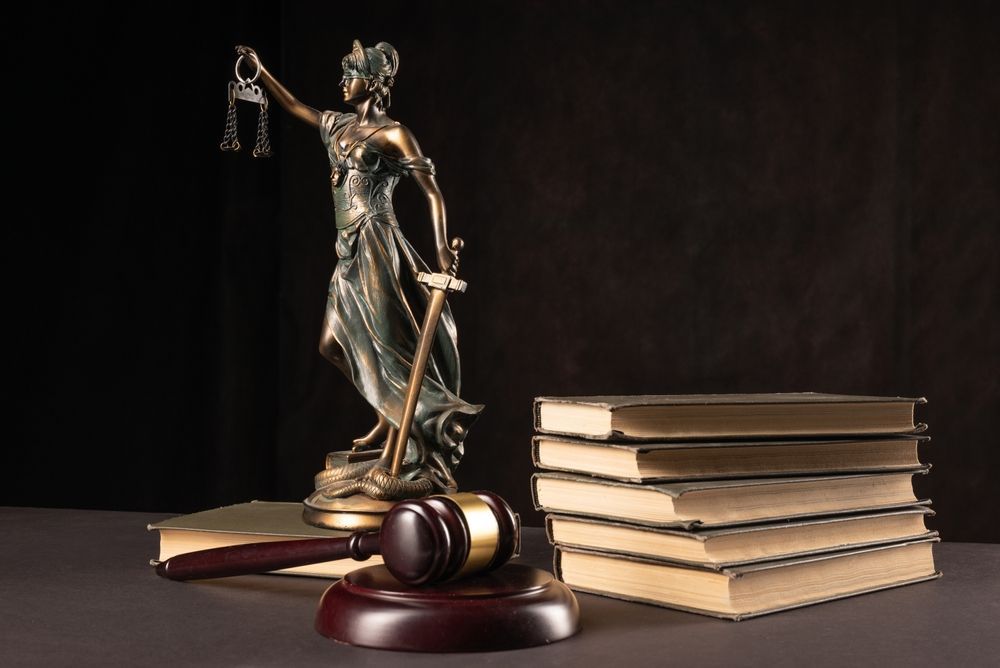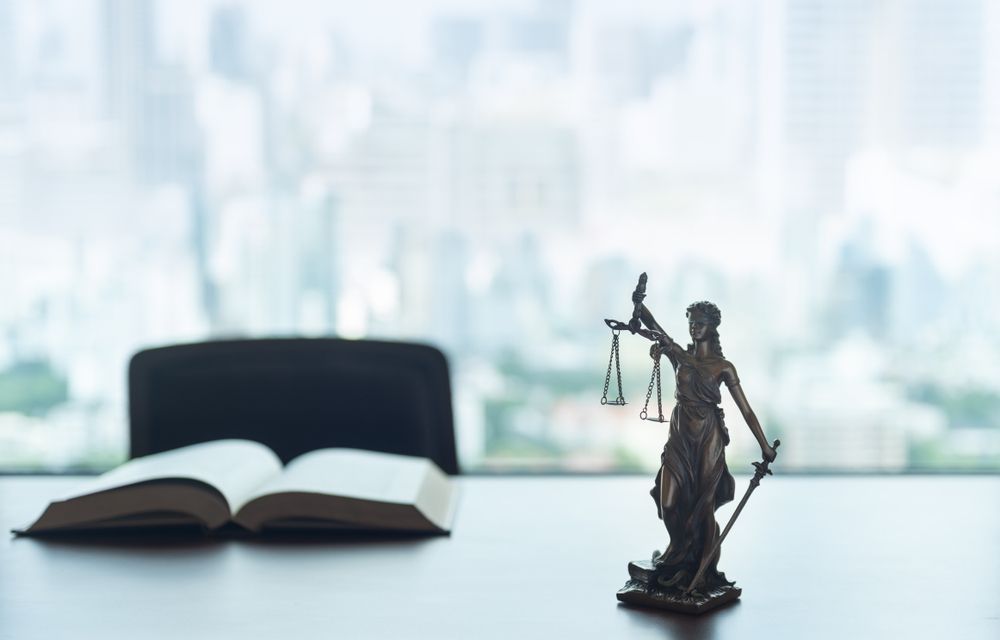Mastering Evidence Presentation in Head-on Collision Trials: A Comprehensive Strategy Guide
Attorneys familiar with head-on collision cases know more than their esteemed colleagues about the importance of irrefutable evidence. Protecting your clients and making sure they get the compensation they desperately need becomes job number one. Investigating the accident, interviewing witnesses, and compiling a compelling case is everything.
In head-on collision trials, the evidence presented can make or break a case. Many individuals struggle with understanding how to effectively gather and present this evidence, especially when dealing with complex issues like negligence and injuries. This guide will cover the crucial role of evidence, strategies for collecting it immediately after a car accident, and how to leverage expert witness testimonies. By engaging with this content, readers will learn how to build a strong case that addresses common pain points, such as proving liability and securing compensation for injuries like bruises or the need for surgery.
Understanding the Crucial Role of Evidence in Head-on Collision Trials
Establishing fault in head-on collision trials relies heavily on the presentation of evidence. This section will explore the types of evidence commonly used, such as accident reports and witness statements, and how they influence jury perception. Understanding these elements is vital for navigating legal complexities, including the statute of limitations and claims related to reckless driving, especially in cases involving facial trauma.
Establishing Fault Through Evidence
Establishing fault in head-on collision trials is critical, as it directly impacts the outcome for victims suffering from serious injuries. Evidence such as accident reports, photographs of the scene, and expert testimony can clarify the circumstances leading to the crash. For instance, if a driver was found to be under the influence or distracted, this information can significantly influence the jury's perception of liability and the severity of the consequences, including potential amputation of limbs or damage to vital organs.
Witness testimony also plays a vital role in establishing fault. Eyewitness accounts can provide firsthand insights into the events leading up to the collision, helping to paint a clearer picture for the jury. When jurors hear consistent and credible testimony regarding the actions of the drivers involved, it can strengthen the case for the injured party, ensuring that they receive the compensation they deserve for their injuries and losses.
Types of Evidence Commonly Used in Trials
In head-on collision trials, various types of evidence are essential for establishing the facts surrounding the accident. Accident reports generated by law enforcement provide a detailed account of the incident, including any indications of driving under the influence or reckless behavior. Photographs of the scene can also be crucial, as they capture the positions of the vehicles and any visible damage, which can help illustrate the severity of injuries, such as spinal cord damage or significant bleeding, suffered by the victims.
Witness statements are another vital component of evidence in these trials. Eyewitnesses can offer firsthand accounts of the events leading up to the collision, which can clarify the actions of the drivers involved. Consistent and credible testimony can significantly impact the jury's understanding of the case, especially when it highlights the negligence of a driver, thereby supporting the claims of those suffering from serious injuries and seeking appropriate compensation for their losses.
Impact of Evidence on Jury Perception
The impact of evidence on jury perception in head-on collision trials is significant, as jurors often rely on the presented facts to form their opinions about liability and damages. When an attorney effectively showcases clear and compelling evidence, such as accident reports and witness statements, it can reduce the perceived risk of making an incorrect judgment. This clarity is especially crucial in cases involving a wrongful death claim, where the stakes are high, and the emotional weight of the evidence can influence the jury's decision-making process.
Collecting Comprehensive Evidence Immediately After the Collision
Documenting the accident scene effectively is crucial for building a strong case in head-on collision trials. This includes preserving physical evidence, gathering reliable witness statements, and securing police and accident reports. Each of these elements plays a vital role in establishing liability, especially in cases involving distracted driving, property damage, and serious injuries like neck trauma or paralysis. Understanding these steps ensures that the evidence presented at trial is comprehensive and compelling.
Documenting the Accident Scene Effectively
Documenting the accident scene effectively is essential for establishing a strong case in head-on collision trials. This process involves capturing detailed photographs of the vehicles, road conditions, and any visible injuries, which can provide critical evidence of pain and suffering experienced by the victims. According to the National Highway Traffic Safety Administration, thorough documentation can also highlight factors contributing to the collision, such as distracted driving, which may lead to serious outcomes like spinal cord injury and long-term impacts on quality of life.
In addition to photographs, gathering reliable witness statements immediately after the collision can significantly enhance the case. Eyewitness accounts can clarify the events leading up to the accident, providing context that supports claims of negligence. This comprehensive approach to documenting the scene not only aids in establishing liability but also addresses the emotional stress faced by victims and their families, ensuring that their experiences are accurately represented in court.
Preserving Physical Evidence for Trial
Preserving physical evidence after a head-on collision is essential for building a strong case. This includes collecting items such as vehicle parts, debris from the scene, and any personal belongings that may have been affected by the accident. For instance, if distraction or DUI behavior contributed to the crash, documenting these elements can provide critical insights into the circumstances surrounding the incident, helping to establish liability in court.
Additionally, securing evidence from the highway, such as skid marks or road conditions, can further support claims of negligence. Photographs should be taken from multiple angles to capture the full context of the collision. This thorough approach not only aids in presenting a compelling case but also addresses the emotional and physical impacts on victims, ensuring their experiences are accurately represented during the trial.
Gathering Reliable Witness Statements
Gathering reliable witness statements is a critical step in building a strong case following a head-on collision. Eyewitnesses can provide essential insights into the events leading up to the accident, which can clarify the actions of the drivers involved. This information is particularly valuable in cases of drunk driving accidents, where establishing the driver's behavior can significantly impact the outcome of the trial and the compensation for victims suffering from catastrophic injuries.
To ensure the statements collected are credible, it is important to approach witnesses promptly after the incident. Legal advice can guide attorneys on how to effectively interview witnesses, focusing on their observations and any details that may relate to the pain and suffering experienced by the injured parties. By securing accurate and detailed witness accounts, attorneys can strengthen their case, making it easier to demonstrate the negligence that led to serious injuries and the need for ongoing physical therapy for the victims.
Securing Police and Accident Reports
Securing police and accident reports is a vital step in building a strong case following a head-on collision. These reports provide official documentation of the incident, detailing the circumstances surrounding the crash, including any indications of drowsy driving or reckless behavior. This evidence is crucial in personal injury law, as it can substantiate claims of negligence and help establish the force of the impact, which may correlate with the severity of injuries sustained, such as chronic pain or other long-term effects.
Leveraging Expert Witness Testimonies to Strengthen Your Case
Accident reconstruction experts play a crucial role in head-on collision trials by analyzing the crash dynamics, including speed limits and lane positioning. Medical experts provide vital evidence regarding injuries, such as soft tissue damage and internal bleeding, while technical specialists assess vehicle performance and safety features. Each of these expert testimonies strengthens the case by offering clear insights into the factors contributing to car accidents.
Role of Accident Reconstruction Experts
Accident reconstruction experts play a vital role in head-on collision trials by providing detailed analyses of the crash dynamics. They assess factors such as speed, vehicle positioning, and road conditions to establish the duty of care that each driver had at the time of the accident. Their findings can significantly influence negotiations and trial outcomes, as they offer objective insights that clarify the circumstances surrounding the incident.
These experts utilize advanced technology and methodologies to recreate the accident scene, which can help juries understand the events leading to the collision. By presenting clear evidence of safety violations or reckless behavior, accident reconstruction specialists strengthen the case for the injured party. Their testimony not only aids in establishing liability but also underscores the importance of adhering to safety standards, ultimately supporting the claims of those seeking compensation for their injuries.
Utilizing Medical Experts for Injury Evidence
Utilizing medical experts in head-on collision trials is essential for establishing the extent of injuries sustained by victims. These professionals can provide detailed assessments of injuries, such as those resulting from fatigue-related accidents at intersections, which may not be immediately apparent. Their testimony can clarify how these injuries impact the victim's daily life, including their ability to work and potential loss of income, thereby strengthening the legal case for compensation.
Medical experts can also explain the long-term effects of injuries, such as chronic pain or mobility issues, which may arise from a vehicle collision. By presenting clear, evidence-based insights into the medical implications of the accident, these experts help juries understand the severity of the situation. This understanding is crucial for ensuring that victims receive the compensation they deserve for their injuries and losses, making the role of medical testimony a vital component in the overall strategy of a head-on collision trial.
Engaging Technical Specialists for Vehicle Analysis
Engaging technical specialists for vehicle analysis is a critical step in head-on collision trials. These experts assess the mechanics of the accident, including vehicle performance and safety features, which can provide essential insights into the factors contributing to the crash. For instance, if a car accident victim suffers from brain damage due to a lack of safety features, the testimony of a technical specialist can clarify how these deficiencies played a role in the severity of the injuries sustained.
Technical specialists can also analyze the impact dynamics, helping to establish the extent of damages incurred during the collision. Their findings can illustrate how the design and condition of the vehicles involved may have influenced the outcome, particularly in cases where skull injuries are prevalent. By presenting this evidence, attorneys can strengthen their case, ensuring that car accident victims receive the compensation they deserve for their injuries and losses.
Crafting a Persuasive Evidence Presentation Strategy
Organizing evidence effectively is essential for clear storytelling in head-on collision trials. This section will cover strategies for using visual aids to enhance understanding, anticipating and countering defense arguments, and emphasizing key evidence to support liability. Each of these elements plays a crucial role in securing a favorable car accident settlement, especially for victims dealing with disabilities or back pain resulting from the incident.
By mastering these techniques, attorneys can present a compelling case that highlights the importance of safety features, such as airbags, and the impact of the accident on the victim's life, ultimately leading to a successful settlement.
Organizing Evidence for Clear Storytelling
Organizing evidence for clear storytelling in head-on collision trials is essential for effectively conveying the impact of the incident on victims. A lawyer must present evidence in a logical sequence that highlights the progression from the accident to the resulting wounds, such as burns or other serious injuries. By structuring the narrative around the evidence, attorneys can create a compelling case that resonates with jurors, making it easier for them to understand the severity of the situation and the need for appropriate compensation.
Incorporating visual aids, such as diagrams or photographs of the accident scene, can further enhance the storytelling process. These tools help illustrate the circumstances of the collision, especially in cases involving hit-and-run incidents or medical malpractice claims related to inadequate emergency response. By emphasizing key evidence and its relevance to the victims' experiences, attorneys can effectively engage the jury, ensuring that the emotional and physical toll of the accident is clearly communicated and understood.
Using Visual Aids to Enhance Understanding
Using visual aids in head-on collision trials can significantly enhance the jury's understanding of the case. By presenting diagrams that illustrate the positions of vehicles at the time of the accident, attorneys can clarify the duty of care expected from each driver. This visual representation helps jurors grasp the concept of fault more easily, which is crucial for determining the verdict in a personal injury lawsuit.
Additionally, photographs of property damage and injuries can evoke a stronger emotional response from the jury. When jurors see the extent of damage and the impact on the victims' lives, it reinforces the need for appropriate compensation. This approach not only supports the claims made in the lawsuit but also emphasizes the serious consequences of negligence, ultimately guiding the jury toward a fair verdict.
Anticipating and Countering Defense Arguments
Anticipating and countering defense arguments is essential in head-on collision trials, particularly when addressing claims related to negligence. For instance, if the defense argues that the injured party failed to brake in time, presenting evidence of the vehicle's braking system and expert testimony on its functionality can effectively counter this claim. Additionally, highlighting the role of seat belts in mitigating injuries can reinforce the argument that the victim took necessary precautions, thus strengthening the car accident claim.
Moreover, addressing psychological trauma is crucial when the defense attempts to downplay the emotional impact of the accident. By providing expert testimony on the psychological effects of the collision, attorneys can illustrate how the incident has led to significant mental health challenges for the victim. This approach not only counters defense arguments but also emphasizes the comprehensive nature of the injuries sustained, ensuring that the jury understands the full extent of the victim's suffering in the context of their free car accident claim.
Emphasizing Key Evidence to Support Liability
Emphasizing key evidence to support liability in head-on collision trials is essential for establishing the responsibility of the at-fault driver. For instance, presenting law enforcement reports that detail the circumstances of the accident, including any indications of drunk driving, can significantly influence the jury's perception. This evidence not only highlights the negligence involved but also underscores the need for the injured party to seek therapy and medication for their recovery, reinforcing the argument for appropriate compensation.
Furthermore, showcasing medical records that document the injuries sustained and the subsequent treatment can effectively illustrate the impact of the collision on the victim's life. By detailing the therapy sessions required for recovery, attorneys can draw attention to the long-term consequences of the accident. This approach not only strengthens the case for liability but also emphasizes the emotional and physical toll on the victims, ensuring that jurors understand the full extent of their suffering and the necessity for just compensation.
Navigating Legal Challenges in Evidence Admission
Navigating legal challenges in evidence admission is essential for a successful head-on collision trial. Understanding the rules of evidence in court helps establish the foundation for presenting injury claims, including causation and concussion-related issues. Addressing objections and admissibility issues ensures that witness statements and other critical evidence are properly considered, while ethical handling of all evidence maintains the integrity of the case.
This section will delve into these key topics, providing practical insights on how to effectively manage evidence admission challenges, ultimately supporting the pursuit of justice for victims, including pedestrians affected by such accidents.
Understanding Rules of Evidence in Court
Understanding the rules of evidence in court is essential for attorneys handling personal injury cases, particularly in head-on collisions. These rules dictate what types of evidence, such as accident reports and witness statements, can be admitted during trial. For instance, evidence demonstrating the cause of a head injury must be relevant and reliable to establish the connection between the motor vehicle accident and the injuries sustained, ensuring that the jury can make informed decisions based on factual information.
Attorneys must also be prepared to address objections related to the admissibility of evidence. This includes understanding how to present expert testimony regarding the impact of head-on collisions on victims, particularly in cases involving severe injuries. By effectively navigating these legal challenges, attorneys can strengthen their case and advocate for the compensation their clients deserve, ultimately enhancing the chances of a favorable outcome in personal injury claims.
Addressing Objections and Admissibility Issues
Addressing objections and admissibility issues is a critical aspect of presenting evidence in head-on collision trials. Attorneys must be prepared to counter challenges from the defense regarding the relevance and reliability of evidence, such as witness statements or expert testimonies. For example, if the defense questions the credibility of a medical expert, the attorney should be ready to demonstrate the expert's qualifications and the scientific basis for their conclusions, ensuring that the jury receives accurate and trustworthy information.
Furthermore, understanding the rules of evidence is essential for effectively navigating these challenges. Attorneys should anticipate potential objections and develop strategies to preemptively address them. This may involve preparing thorough documentation and clear explanations for the evidence being presented, such as accident reports or photographs of the scene. By proactively managing admissibility issues, attorneys can strengthen their case and enhance the likelihood of a favorable outcome for their clients in personal injury claims related to head-on collisions.
Ensuring Ethical Handling of All Evidence
Ensuring ethical handling of all evidence is paramount in head-on collision trials, as it upholds the integrity of the legal process. Attorneys must adhere to strict guidelines when collecting, preserving, and presenting evidence, including accident reports and witness statements. This commitment to ethical practices not only strengthens the case but also fosters trust with the jury, which is essential for achieving a favorable outcome for clients seeking compensation for their injuries.
Moreover, attorneys should be vigilant in avoiding any manipulation or misrepresentation of evidence, as this can lead to severe legal repercussions and undermine the credibility of the case. By maintaining transparency and ethical standards throughout the trial, legal professionals can effectively advocate for their clients while ensuring that the evidence presented accurately reflects the circumstances of the collision. This approach ultimately supports the pursuit of justice for victims and reinforces the importance of ethical conduct in personal injury law.
Learning From Successful Head-on Collision Cases
Analyzing successful head-on collision cases reveals effective evidence presentation strategies that can significantly impact trial outcomes. This section will cover case study analysis, highlighting lessons learned from past trials and how these insights can be adapted for future litigation. By understanding these practical approaches, attorneys can enhance their ability to present compelling evidence and secure favorable results for their clients.
Case Study Analysis of Effective Evidence Presentation
Case studies of successful head-on collision trials highlight the importance of effective evidence presentation in achieving favorable outcomes. For instance, in a notable case, attorneys utilized a combination of accident reconstruction analysis and eyewitness testimonies to establish clear liability. This strategic approach not only clarified the sequence of events but also reinforced the credibility of the injured party's claims, ultimately leading to a substantial settlement for the victims.
Another example demonstrates how visual aids, such as diagrams and photographs, played a crucial role in conveying the impact of the collision to the jury. By illustrating the positions of the vehicles and the resulting injuries, the attorneys were able to evoke a stronger emotional response from jurors. This case underscores the necessity of organizing evidence in a compelling manner, ensuring that the jury fully understands the severity of the situation and the need for appropriate compensation for the injured parties.
Lessons Learned From Past Trials
Lessons learned from past head-on collision trials emphasize the importance of thorough evidence collection and presentation. Successful cases often highlight the need for a well-organized narrative that connects the evidence to the injuries sustained by victims. For instance, attorneys who effectively utilized accident reconstruction analysis alongside eyewitness testimonies were able to establish clear liability, leading to favorable outcomes for their clients.
Additionally, the strategic use of visual aids has proven to be a powerful tool in influencing jury perception. In previous trials, attorneys who incorporated diagrams and photographs to illustrate the accident scene and the resulting injuries found that jurors were more engaged and empathetic. This approach not only clarified the circumstances of the collision but also reinforced the emotional impact on the victims, ultimately supporting their claims for compensation.
Adapting Strategies for Future Litigation
Adapting strategies for future litigation in head-on collision cases involves a thorough analysis of past successful trials. Attorneys can benefit from examining how effective evidence presentation, such as the use of accident reconstruction and eyewitness testimonies, played a pivotal role in establishing liability. By integrating these proven methods into their own practices, legal professionals can enhance their ability to present compelling cases that resonate with juries and lead to favorable outcomes for their clients.
Moreover, incorporating visual aids and clear narratives can significantly improve jury engagement and understanding. For instance, attorneys who utilize diagrams and photographs to illustrate the accident scene can evoke stronger emotional responses, reinforcing the severity of the injuries sustained. By learning from these successful strategies, attorneys can refine their approach to evidence presentation, ultimately increasing the likelihood of securing just compensation for victims of head-on collisions.
Recent Posts






Attorney Joseph Zdrilich
Attorney Joseph A. Zdrilich is the founder of Zdrilich Injury Law and has represented injured clients across Georgia since 2007. He is a graduate of the University of Richmond and Syracuse University College of Law and has handled both bench and jury trials in personal injury, workers’ compensation, trucking, and auto accident cases. He is admitted to practice in all Georgia state courts, the U.S. District Courts for the Northern and Middle Districts of Georgia, and the Eleventh Circuit Court of Appeals. If you were injured due to someone else’s negligence, contact Zdrilich Injury Law today for a free legal consultation.
GET A FREE CONSULTATION TODAY
INJURED? TAKE YOUR LIFE BACK!
Zdrilich Injury Law is committed to helping injured Georgians receive the money they need to recover physically and financially after an accident.
